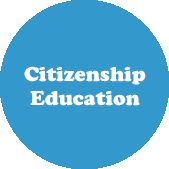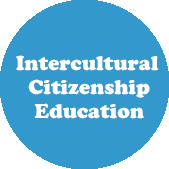Intercultural Education
A cultural / sociocultural competence usually focuses on developing knowledge and understanding, related to the culture of the target language, usually in relation to the range of countries where the language is spoken. An intercultural competence, on the other hand, presumes the development of knowledge, skills and attitudes at the interface between several cultural areas that involve the cultural identities of the student and those of (an)other interlocutor/s. This development is procedural, and active reflection around students’ own cultural assumptions is integral to the process of being able to decentre and compare, fostering a greater awareness and respect for the diversity of the world around them.
A cultural / sociocultural approach tends to focus on general cultural facts, behaviours, and products, usually associated with a national culture (e.g. festivities, typical food, etc). This often reduces cultural traits to descriptive generalisations and stereotypes. An intercultural approach, in contrast, focusses on contextualized and specific interpersonal situations, avoiding generalisations since an important premise is that our cultural identities are multiple, complex, and constantly changing. The aim is to develop competencies (eg critical thinking, reflecting, analyzing …) that will help the speakers mediate cultural difference constructively.
An intercultural education develops in students an understanding of own culture and ‘cultural selves’, as well as that of others, with the acquired ability to act in a sensitively and culturally appropriate manner with others.
References
Barrett, Martyn (2018). How schools can promote the intercultural competence of young people. European Psychologist. 23(1), 93–104.
Byram, M. (1997) Teaching and Assessing Intercultural Communicative Competence. Clevedon: Multilingual Matters.
Council of Europe (2013). Developing Intercultural Competence through Education. Strasbourg: Council of Europe
For a definition of concepts. The UNESCO, Intercultural Dialogue – core concepts site is useful.
For further clarification of central concepts, such as identity, culture, intercultural dialogue, the Reference Framework of Competences for Democratic Culture is useful.
For an accessible explanation of the intercultural communicative competence:
Byram, M., & Wagner, M. (2018). Making a Difference: Language Teaching for Intercultural and International Dialogue. Foreign Language Annals, 51/1, 140-151





